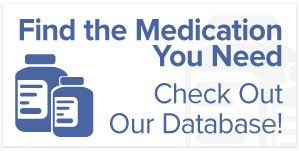In today’s fast-paced and demanding world, mental health has become an increasingly prominent concern. The stresses of modern life, coupled with societal expectations and personal challenges, often take a toll on our mental well-being. This article explores the challenges individuals face in maintaining good mental health and examines potential solutions, with a focus on the role of prescription assistance providers in supporting mental health care.
Understanding the Challenges
Mental health challenges can manifest in various forms, including stress, anxiety, depression, and other mood disorders. Factors such as work-related stress, relationship issues, financial pressures, and societal expectations contribute to the complexity of mental health issues. The stigma associated with mental health problems further exacerbates the challenges individuals face, making it difficult for them to seek help.
Recognizing the Signs
It’s crucial to recognize the signs of mental health issues early on to initiate timely intervention. Changes in behavior, mood swings, withdrawal from social activities, and altered sleep patterns can all be indicative of underlying mental health concerns. Acknowledging these signs is the first step toward seeking the necessary support and care.
The Role of Stress Reduction Tools
There is a wide range of products, including stress-relief items, sleep aids, and relaxation tools that can aid in managing and alleviating mental health symptoms.
For instance, stress balls, fidget spinners, and other tactile tools can be effective in reducing stress and anxiety. These simple yet powerful tools provide individuals with an outlet for nervous energy and can be used discreetly in various settings, offering a practical solution to manage stress on the go.
Prescription Assistance Providers: Bridging Gaps in Mental Health Care
In many cases, individuals with mental health conditions require medication as part of their treatment plan. However, accessing and affording these medications can be a significant barrier to effective mental health care. This is where patient and prescription assistance providers come into play, offering crucial support to those in need.
Prescription assistance providers work to bridge the financial gap by connecting individuals with prescription assistance programs, discounts, and other resources that make medications more affordable. These providers collaborate with pharmaceutical companies and charitable organizations to ensure that cost is not a hindrance to accessing necessary mental health medications.
The Role of Medication in Mental Health Treatment
Medication can be a crucial component of mental health treatment, particularly for conditions such as depression, anxiety, bipolar disorder, and schizophrenia. However, the effectiveness of medication depends on various factors, including proper diagnosis, appropriate dosage, and adherence to the prescribed treatment plan.
Patient assistance providers play a key role in ensuring that individuals have access to the medications they need. By facilitating enrollment in prescription assistance programs and helping navigate the complexities of insurance coverage, these providers contribute to the overall well-being of those with mental health conditions.
Holistic Approaches to Mental Health
While patient assistance providers offer valuable resources, it’s essential to approach mental health from a holistic perspective. Combining traditional treatments, such as medication and therapy, with lifestyle changes and self-care practices can lead to more comprehensive and sustainable outcomes.
Community Support and Awareness
Creating a supportive community and raising awareness about mental health are crucial steps in breaking down the stigma associated with mental health conditions. Community-based initiatives, support groups, and educational programs contribute to building a more compassionate and understanding society.
Prescription assistance providers can actively participate in community outreach efforts by providing information and resources on mental health. By collaborating with local mental health organizations and clinics, these entities can contribute to destigmatizing mental health issues and promoting access to care.
Integrating mental health education into school curricula can contribute to early intervention and equip young individuals with the knowledge and skills to manage their mental health effectively. By fostering open dialogue and creating supportive environments, we can collectively contribute to a society where mental health is regarded with the same importance as physical health.
It is through these collaborative efforts that we can make significant strides in addressing the complexities of mental health and creating a more compassionate and understanding world.
With the help and assistance of The Rx Helper, you can take a step towards the betterment of your mental health, too. They offer patience assistance programs in the US, tap here to know more.






